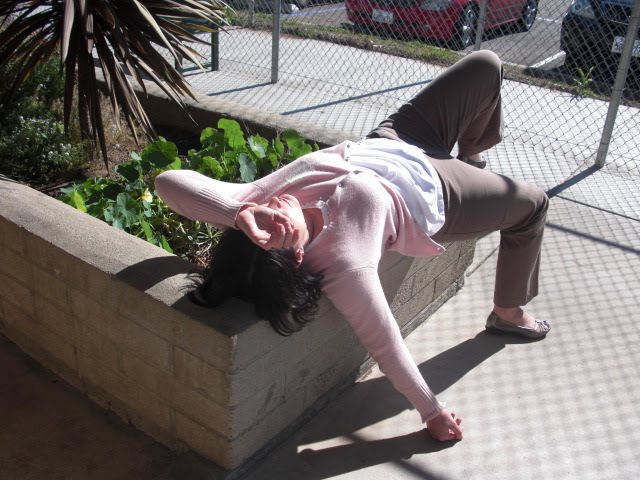Okay tootsies... it's time to get
down with some philosophy up in the blogosphere.
As I reach
the almost halfway mark of the Abecedary of Cape-Wearing with the letter L.
L is for the Law of Unintended
Consequences
Here are some quick definitions:
--events
and/or actions that result from the implementation of a law of rule that the
makers of the law did not expect (link here)
--unintended consequences (sometimes unanticipated consequences or
unforeseen consequences) are outcomes that are not the ones intended by a
purposeful action (link
here)
--actions,
particularly those taken on a large scale as by governments, may have
unexpected consequences. These “reactions,” may be positive, negative or merely
neutral, but they veer off from the intent of the initial action (link here)
How does
this apply to the Abecedary of Cape-Wearing? Here is my thinking (and the
thinking of these folks that wrote this cool and totally geeky book)... Superheroes dwell exactly in the middle of a
world of large-scale, high impact, life-altering change. They save lives, lasso
meteors, thwart world domination. Even the smallest action in the world of a
superhero is... well... super. It is a super action that leads to a super
consequence.
When my kidlets and I were in the throes of discussing what makes a superhero, they noticed that all of the truly heroic superfolks wrestled with their own powers at one time or another. At first they scoffed at this idea--why would Superman even pause for thought if he could do all of those super things? Why didn't Batman just stop with the tortured-soul act and get on with it? What could possibly have possessed Hal Jordan to even consider NOT becoming a Green Lantern?
One of the
kidlets had a big thinking thought, "Because sometimes people died."
Big thinking
silence ensued. What if your heroism killed people? Is it worth it?
"Yes,
if it saves other people."
"What
if it kills the wrong people?"
"Is it ever worth it if someone
dies?"
"I bet you still feel bad even if you
didn't mean it."
"It doesn't matter if you meant it or
not--it killed people."
And they looked at me for the
answer--hoping I could wrap it up in a nice package that would feel better than
the abyss of uncertainty that was, at that moment, staring them in the face.
They waited... I waited... realization dawned on their spongy
brains. There is no right answer to this question. Large-scale actions lead to
large scale results--a spider web of consequences that can't be planned or
controlled.
After this conversation the lovies were
subdued for a few days. They noticed unintended consequences for their
decisions more and more. The learning on this one was deep and personal. I
wasn't sure if they would make the connection, but I didn't want to make it for
them--this was deep learning and not to be rushed.
About a week later the light shined
down--they were reading about Martin Luther King Jr in their social studies
class. I heard them arguing as they walked in to my room,
"He was a pacifist. He was
peaceful."
"But people got hurt and maybe
died."
"He didn't mean for them to do that
though. It wasn't his fault."
"He gave speeches and told them to
take action--he should have known."
"How could he know what would they
would do?"
“That’s what you have to do when you make big decisions. You have
to decide if it’s worth the consequence.”
And lo' the light shined down as they made
the connection.
"Hey Boss, this is that law of the consequences
thing!”
Why yes my dears... yes it is.
In education we must be aware of the Law of Unintended
Consequences. Our words and actions have power. We may not be able to control
each resulting ripple, but it is our responsibility to think it through,
consider it, be intentional in our work.
What are your thoughts about the Law of Unintended Consequences? Where does it apply to your work, your
planning, your best hopes?








































.jpg)
.jpg)

